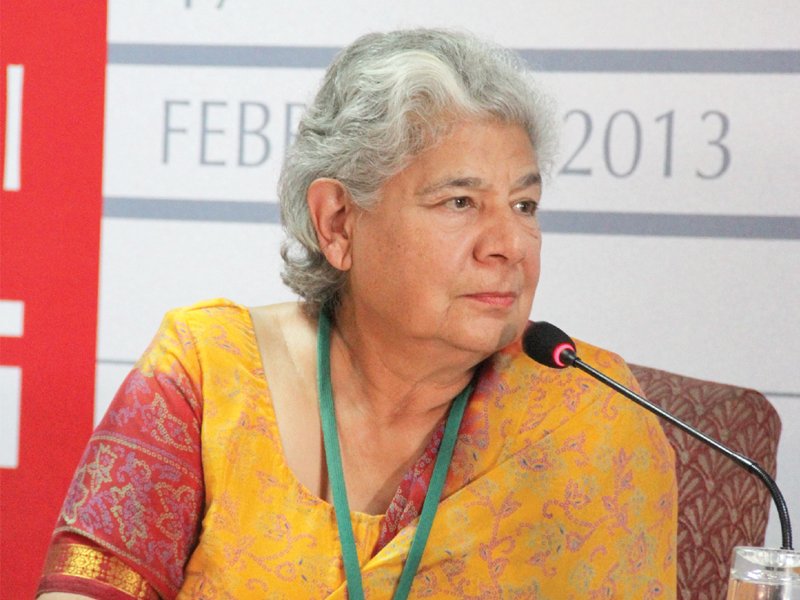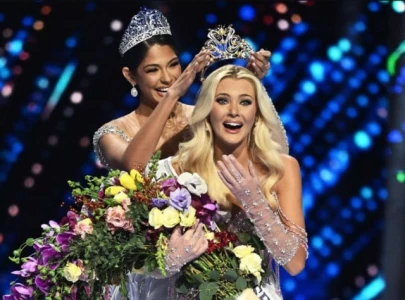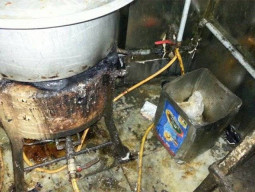
The launch of the three-volume Critical Muslim Series edited by Ziauddin Sardar and Robin Yassir-Kassab failed to attract young readers on day three of the fourth Karachi Literature Festival Sunday.
The crowd of almost 40 people mostly on the other side of 50, felt that the series that features essays, fiction, and scholarly discourse on Muslim identity in the rapidly changing world might not work for Pakistani readers as its society has more traditional or fundamental view of the religion.
Moderator Ghazi Salahuddin filled the void left by British-Syrian writer Izzeldin Abuelaish, who declined to come to Karachi, according to the organiser, but made it to the festival a day later. But Swedish-Pakistani writer and educator Dr Ishrat Lindblad and author Bina Shah spoke about the relevance of the series, advocating the cause that more secular views of Islam should be at least read in order to understand the religion and find a place without being judged as extremists in the rapidly changing perception of the Muslims in the western world.
In the absence of Abuelaish, who was supposed to be the key speaker at the launch for contributing essays to the first volume of the series, “The Arabs are Alive”, Salahhudin briefly reviewed the book as insightful yet engaging because of its short stories, poems and essays from Arab writers. He emphasized that the book focuses on the shift in world perception of Arabs after the Arab Spring.

Dr Lindblad reviewed the second book in the series “The Idea of Islam”, saying that the collection of essays by different writers tended to lean more towards secularism and not necessarily to the fundamental concepts of Islam. “These writers, all of them who contributed, are elitists, coming from rich backgrounds, [and who] studied in the best universities,” she remarked. “Their viewpoint is very modern. For example one of the writers is Kurdish living in England, the other one from Sweden. All of them speak more than three languages and don’t necessarily identify themselves as Muslims first. However, this book is the battle between traditional or popular thought and the modern more secular viewpoint.”
The volume also contains two autobiographical accounts of women writers, and how they are judged by their western counterparts on being a Muslim. “Most of the people would perceive that Muslim women are oppressed. Personally I try to explain to them that Islam is more progressive than the western culture that they are living in,” she said. “Once, a woman asked how come we allow four marriages, I just replied to her that Islam is at least more progressive; it accepts the reality that a person can go elsewhere despite being married, so we just allow our men to marry again - Muslims are more modern.”
Meanwhile, Bina Shah spoke on the third volume, “Pakistan?” in which she contributed an essay on Pakistani writers. She concluded that the book might not please everyone as it has views that contradict popular ideas about Pakistan and Islam.
“The editors definitely have an agenda, and that is to start a debate to explore the issue of Muslim identity as a community,” she said. She argued that perceptions and concepts of Islam need to be renewed in Pakistan which doesn’t have the relilgion’s initial spirit. We forget that the Prophet Mohammad (PBUH) rebelled against Arab culture and brought changes. “The book will leave you uncomfortable with many questions,” concluded Shah.
Dr Lindblad wrapped up the session with a stunning Hadith: “The disagreements of my community are a blessing.”
Published in The Express Tribune, February 18th, 2013.
Correction: An earlier version of the article quoted the organiser that writer Izzeldin Abuelaish had declined to visit Karachi, but Abuelaish later did make it to the event.
COMMENTS (3)
Comments are moderated and generally will be posted if they are on-topic and not abusive.
For more information, please see our Comments FAQ

















Why only four wives and not fifty?
Er, it's a four volume series. Pakistan? was the fourth volume. The third volume was out of stock.
There is a HUGE mistake in this article. Dr. Izzeldin Abuelaish was very much present in Karachi and at the Festival. He gave a hugely moving account of his experiences and readings from his book 'I Shall Not Hate'. Furthermore he is Palestinian. The writer your reporter was referring to was Robin Yassin-Kassab. Please correct this immediately.